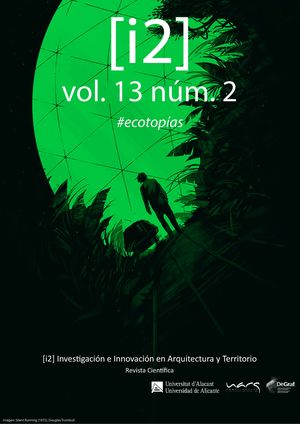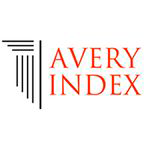Agencias de calor. Experimentos pedagógicos para la arquitectura en estrés térmico
DOI:
https://doi.org/10.14198/i2.28862Palabras clave:
agencia, calor, pedagogías, arquitectura, adaptación climática, estrés térmico, Madrid, EspañaResumen
El cambio climático está produciendo efectos directos en la vida urbana, donde se dan las Islas de Calor Urbanas (ICUs) como alteración antropogénica del microclima. Las olas de calor se han vuelto más intensas y prolongadas, exponiendo a la población urbana a condiciones térmicas extremas. En contexto urbano, los fenómenos de isla y ola de calor se solapan, agravando las condiciones especialmente en las noches, cuando no se logra disipar el calor acumulado durante el día. El calor, además de ser un fenómeno físico, es relacional y se distribuye desigualmente en la ciudad, intensificando diferencias sociales. Reconocer las experiencias de estrés térmico en contextos vulnerables conlleva entender cómo estas se contrarrestan por vías no tecnificadas —como tecnologías de refrigeración por aire acondicionado—, sino a través de prácticas vernáculas de los usuarios que modifican y se adaptan en sus espacios domésticos y urbanos. Estas prácticas están íntimamente enraizadas en su contexto material y ponen en funcionamiento estrategias pasivas desligadas del gasto energético. Trabajar en estos lugares abre la pregunta, que en este trabajo se asume como objetivo central: la posibilidad de ampliación de las pedagogías de enseñanzas eminentemente técnicas para incluir los enredos socio-materiales de adaptación al calor como asuntos relevantes.
Financiación
Este proyecto ha recibido financiación de Cooltorise, proyecto financiado por la UE a través de los fondos Horizon 2020, research and innovation programme. Número 101032823. También ha recibido apoyo de la Universidad Politécnica de Madrid, a través de los proyectos de Aprendizaje y Servicio, SEPAs 2022 y 2023. La participación del autor principal ha sido posible gracias a financiación de la Unión Europea – Next Generation, Plan de Recuperación, contratos Margarita Salas, Universidad de Alicante (MARSALAS 21-32).Citas
Abunyewah, M., Gajendran, T., Erdiaw-Kwasie, M. O., Baah, C., Okyere, S. A., & Kankanamge, A. K. S. U. (2025). The multidimensional impacts of heatwaves on human ecosystems: A systematic literature review and future research direction. Environmental Science & Policy, 165, 104024. https://doi.org/10.1016/j.envsci.2025.104024
Barad, K. (2007). Meeting the universe halfway: Quantum physics and the entanglement of matter and meaning. Duke University Press. https://doi.org/10.2307/j.ctv12101zq
Barad, K. (2012, November). Intra-actions (K. Adam, Interview). Mousse Magazine, 34. https://breathingwith.multiplace.org/_media/intra-actions_interview_of_karen_barad.pdf
Bozalek, V., Braidotti, R., Shefer, T., & Zembylas, M. (2018). Socially just pedagogies: Posthumanist, feminist and materialist perspectives in higher education. Bloomsbury Academic. https://doi.org/10.5040/9781350032910
Braidotti, R. (2013). The posthuman. Polity Press.
COOLTORISE Project. (2023, June 15). Outdoor activities in Madrid to mitigate the effect of summer heat [Video]. YouTube. https://www.youtube.com/watch?v=18UaKHjtWMo
Cuerdo-Vilches, T., Díaz, J., López-Bueno, J. A., Luna, M. Y., Navas, M. A., Mirón, I. J., & Linares, C. (2023). Impact of urban heat islands on morbidity and mortality in heat waves: Observational time-series analysis of Spain's five cities. Science of the Total Environment, 890, 164412. https://doi.org/10.1016/j.scitotenv.2023.164412
De Dear, R., Xiong, J., Kim, J., & Cao, B. (2020). A review of adaptive thermal comfort research since 1998. Energy and Buildings, 214, 109893. https://doi.org/10.1016/j.enbuild.2020.109893
Díaz, R., & Freire, J. (2012). Educación expandida. Zemos98.
Farías, I., Luggauer, E., & Martín, J. (2022, July). Sensing and making sense of cities as wave fields: Multimodal tour through "hot spots" in Madrid [Conference presentation]. EASST 2022-Politics of Technoscientific Futures, Madrid, Spain. https://www2.hu-berlin.de/stadtlabor/event/sensing-and-making-sense-of-cities-as-wave-fields-a-multimodal-guided-bus-tour-through-hot-spots-in-madrid/
Founda, D., Pierros, F., Katavoutas, G., & Keramitsoglou, I. (2019). Observed trends in thermal stress at European cities with different background climates. Atmosphere, 10(8), 436. https://doi.org/10.3390/atmos10080436
Gobbo, A. D. (2022). Energy and the ethnography of everyday life: A methodology for a world that matters. Ethnography, 23(1), 3-29. https://doi.org/10.1177/14661381211065598
Haraway, D. J. (2016). Staying with the trouble: Making kin in the Chthulucene. Duke University Press. https://doi.org/10.2307/j.ctv11cw25q
Heschong, L. (1979). Thermal delight in architecture. MIT Press.
Linares-Gil, C., López-Bueno, J. A., Navas-Martín, M. A., & Díaz-Jiménez, J. (2024). Determinación de umbrales de mortalidad por ola de calor según regiones isoclimáticas en España (Technical report). Instituto de Salud Carlos III, Escuela Nacional de Sanidad. https://doi.org/10.4321/repisalud.17386
López Gómez, A. (1993). El clima urbano: Teledetección de la isla de calor en Madrid. Ministerio de Obras Públicas y Transportes.
López-Bueno, J. A., Díaz, J., Sánchez-Guevara, C., Sánchez-Martínez, G., Franco, M., Gullón, P., Núñez Peiró, M., Valero, I., & Linares, C. (2020). The impact of heat waves on daily mortality in districts in Madrid: The effect of sociodemographic factors. Environmental Research, 190, 109993. https://doi.org/10.1016/j.envres.2020.109993
Neila González, F. J., Sánchez-Guevara Sánchez, C., Núñez Peiró, M., Román López, E., López Moreno, H., Gómez Muñoz, G., & de Luxán, M. (2020). Isla de calor, clima urbano y consumo energético de los edificios. Proyecto MODIFICA [Urban heat island, urban climate and building energy consumption]. García-Maroto Editores.
Nieto Fernández, E. J. (Ed.). (2022). Emergencias de lo poshumano: Desafíos arquitectónicos y pedagógicos desde un margen disciplinar. Publicaciones de la Universidad de Alicante.
Núñez Peiró, M., Sánchez-Guevara Sánchez, C., & Neila González, F. J. (2017). Update of the urban heat island of Madrid and its influence on the building's energy simulation. In P. Mercader-Moyano (Ed.), Sustainable development and renovation in architecture, urbanism and engineering (pp. 339-350). Springer. https://doi.org/10.1007/978-3-319-51442-0_28
Prabaharyaka, I., Tess, M., & Farías, I. (2022). The urban microclimate regime: The constitution of spaces and infrastructures of heat [Project website]. Stadtlabor for Multimodal Anthropology. Retrieved July 1, 2025, from https://www2.hu-berlin.de/stadtlabor/project/the-urban-microclimate-regime-the-constitution-of-spaces-and-infrastructures-of-heat/
Sadeghi, M., De Dear, R., Morgan, G., Santamouris, M., & Jalaludin, B. (2021). Development of a heat stress exposure metric - impact of intensity and duration of exposure to heat on physiological thermal regulation. Building and Environment, 200, 107947. https://doi.org/10.1016/j.buildenv.2021.107947
Sanchez-Guevara, C., Núñez Peiró, M., Taylor, J., Mavrogianni, A., & Neila González, J. (2019). Assessing population vulnerability towards summer energy poverty: Case studies of Madrid and London. Energy and Buildings, 190, 132-143. https://doi.org/10.1016/j.enbuild.2019.02.024
Torrego-Gómez, D., Gayoso-Heredia, M., Núñez-Peiró, M., & Sánchez-Guevara, C. (2024). Mapping summer energy poverty: The lived experience of older adults in Madrid, Spain. Energy Research & Social Science, 110, 103449. https://doi.org/10.1016/j.erss.2024.103449
Yáñez Serrano, P., Torrego-Gómez, D., & Bieńkowska, Z. (2023). Energy vulnerability and self-imposed austerity: An ethnographic approach to adaptation strategies to extreme heat among older adults in Madrid. Energy Research & Social Science, 103, 103207. https://doi.org/10.1016/j.erss.2023.103207
Yáñez Serrano, P., Bieńkowska, Z., Boni, Z., Chwałczyk, F., & Hassani, A. (2024). Understanding individual heat exposure through interdisciplinary research on thermoception. Humanities and Social Sciences Communications, 11(1), 572. https://doi.org/10.1057/s41599-024-03091-5
Descargas
Publicado
Cómo citar
Número
Sección
Licencia
Derechos de autor 2025 Daniel Torrego, Marta Gayoso Heredia, Miguel Núñez Peiró, Carmen Sánchez-Guevara

Esta obra está bajo una licencia internacional Creative Commons Atribución-NoComercial-CompartirIgual 4.0.







